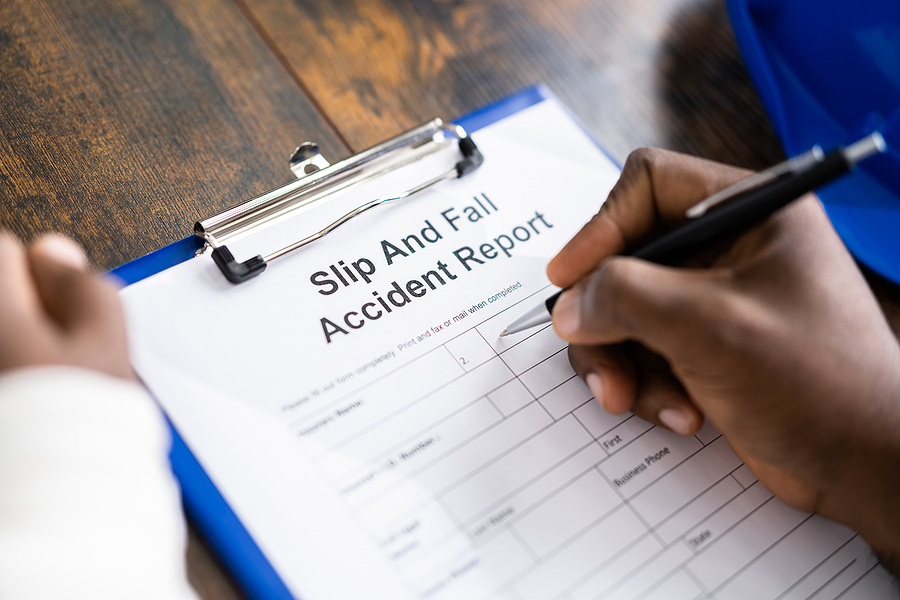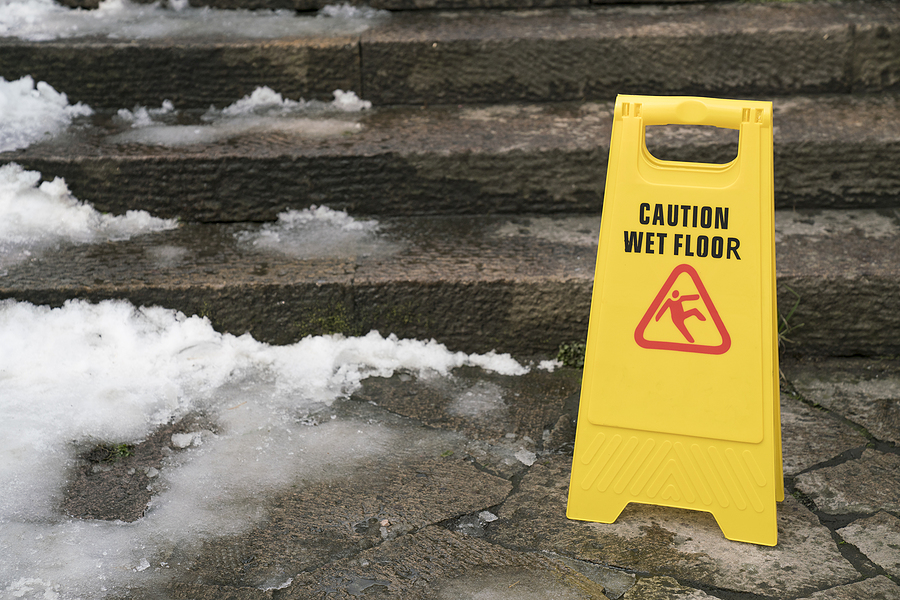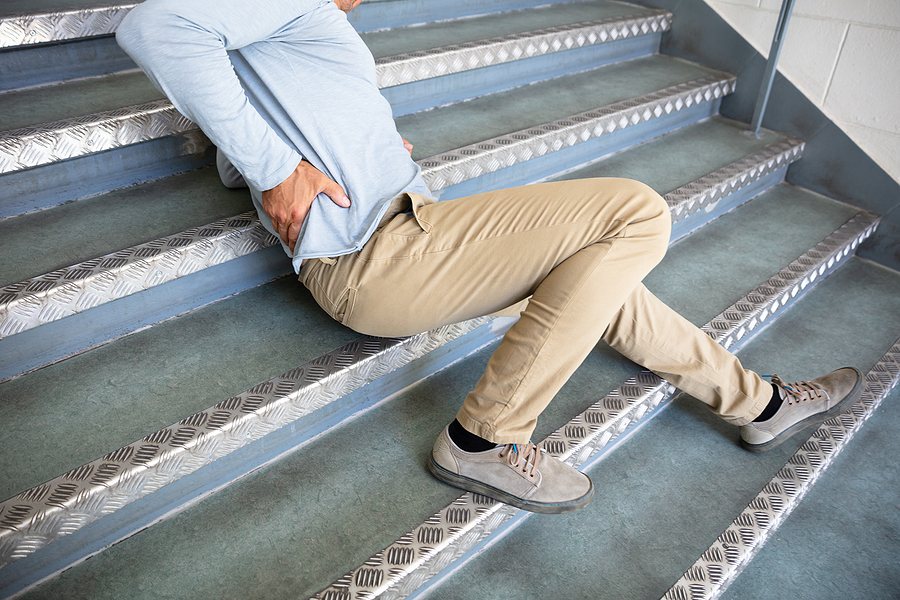Every year, thousands of Americans experience the sudden jolt of pain and fear that comes with tripping and falling in a retail store. The aftermath, however, is often filled with uncertainty. If you find yourself injured due to a slip or trip in an Indiana store, it’s natural to wonder about your rights and whether legal action is an option. This comprehensive guide will walk you through the intricate world of store liability, giving you the knowledge you need to handle these situations with confidence.

Understanding Liability in Slip, Trip and Fall Cases
When a person trips and falls in a store, the question of who is legally responsible for the injury can be complex. Indiana law follows premises liability doctrine, which holds property owners—or the party in control of the premises—accountable for maintaining a safe environment for visitors.
The Duty of Care
Prioritizing the safety of visitors should be paramount for store owners in Indiana. They have a legal ‘duty of care’ under this state’s premises liability law. This duty includes:
▷ Regular safety inspections of the premises
▷ Knowledge of, and action on, hazardous conditions
▷ Posting warnings for known hazards that are not immediately rectifiable
Proving Negligence
To succeed in a claim, you must prove that the store or its employees were negligent. This requires proving:
▷The store was aware or reasonably should have been aware of the hazardous condition.
▷The hazardous condition led to the fall and subsequent injury.
▷The store’s negligence was a significant factor in causing the injury.
Steps to Take After a Slip and Fall Accident
The first moments after a fall are crucial for your safety and any potential claim. Here are the steps you should follow:
► Seek Immediate Assistance – Do not hesitate to ask for help. Call out to someone nearby or activate a store’s emergency assistance system if available.
► Notify the Store of the Incident – It is important to report the incident immediately to the store manager. A written report should be filed, and you are entitled to a copy for your own records.
► Ask the Store to Hold and Store all Video: Numerous stores now have several video cameras on the property. Write down an request on the written report for the store to hold onto the video evidence of you fall and how ling the hazardous condition existed before your fall.
► Document the Scene – Take photographs or video of the area where you fell, including the hazardous condition or object. Record the names and contact information of any witnesses. If you cannot do these things, please have another family member or store patron accumulate this evidence.
► Seek Medical Attention – Even if you feel okay initially, some injuries may become apparent only after the adrenaline wears off. Seeking medical attention promptly can also provide a record of injuries caused by the fall. It is very common for a person who falls to start feeling the injury later that day or even days or weeks later. It is important to seek medical attention as soon as you feel something.
► Retain All Records – Keep records of all costs associated with the fall, including medical bills, lost wages, and any out-of-pocket expenses.
Legal Considerations for Pursuing a Claim
Understanding the legal framework for your claim is essential. Here are the considerations you should bear in mind:
► Statute of Limitations – In Indiana, the statute of limitations for filing a personal injury lawsuit, including slip and falls, is generally two years from the date of the injury. Failing to file within this window may mean losing the right to compensation altogether.
► Determining Fault – Establishing liability can be challenging. However, with strong evidence and legal support, proving the store’s negligence is possible.
► Consulting a Lawyer – An experienced personal injury attorney is an invaluable asset. They assess the merits of your case, guide you through the claims process, and represent you in negotiations or in court if necessary.
Potential Compensation and Settlement
In successful cases, compensation, also known as damages, can cover various aspects of the accident:
► Medical Expenses: This includes all costs related to treatment for your injuries.
► Lost Wages: If you’re unable to work due to an injury, you might be eligible for compensation to cover lost earnings.
► Pain and Suffering: Damages that consider the physical discomfort and emotional distress caused by the accident, both temporary and permanent in some situations.
► Negotiating a Settlement vs. Going to Trial
Personal injury claims are often resolved outside of court through negotiations. Yet, if an agreement cannot be met, proceeding to trial may become necessary.
Conclusion
After a slip and fall in a store, the path to justice may seem fraught with uncertainty. But with the right knowledge and support, you can stand up for your rights. Remember to take decisive action in the immediate aftermath, understand the legal principles at play, and seek professional legal advice to ensure that you receive the just compensation you deserve.
Navigating a slip and fall claim is complex, and each case is unique. We urge you to seek the assistance of a qualified attorney who can offer personalized guidance tailored to your circumstances. Don’t allow the complexities of the legal system to deter you from seeking the justice you deserve. Your comfort and well-being should be the highest priority, and pursuing a claim might lead you to a swift recovery and necessary adjustments to the store’s safety standards and policies.
If you or a loved one has suffered an injury from a slip and fall accident in a store, don’t face the legal battle alone. Contact the Law Office of Craven, Hoover, and Blazek P.C. at 317-881-2700 to get the support and expertise you need. Our experienced Indianapolis slip and fall accident lawyers are well-versed in Indiana premises liability law and are dedicated to fighting for the justice and compensation you deserve. Schedule a free consultation now, before time runs out on your claim.
Related Posts:
Slip and Fall Accidents in Indiana: What You Need to Know
Facts About Premise Liability Policy For Small Business Owners
How to Get the Most Out of Your Slip and Fall Injury Claim



